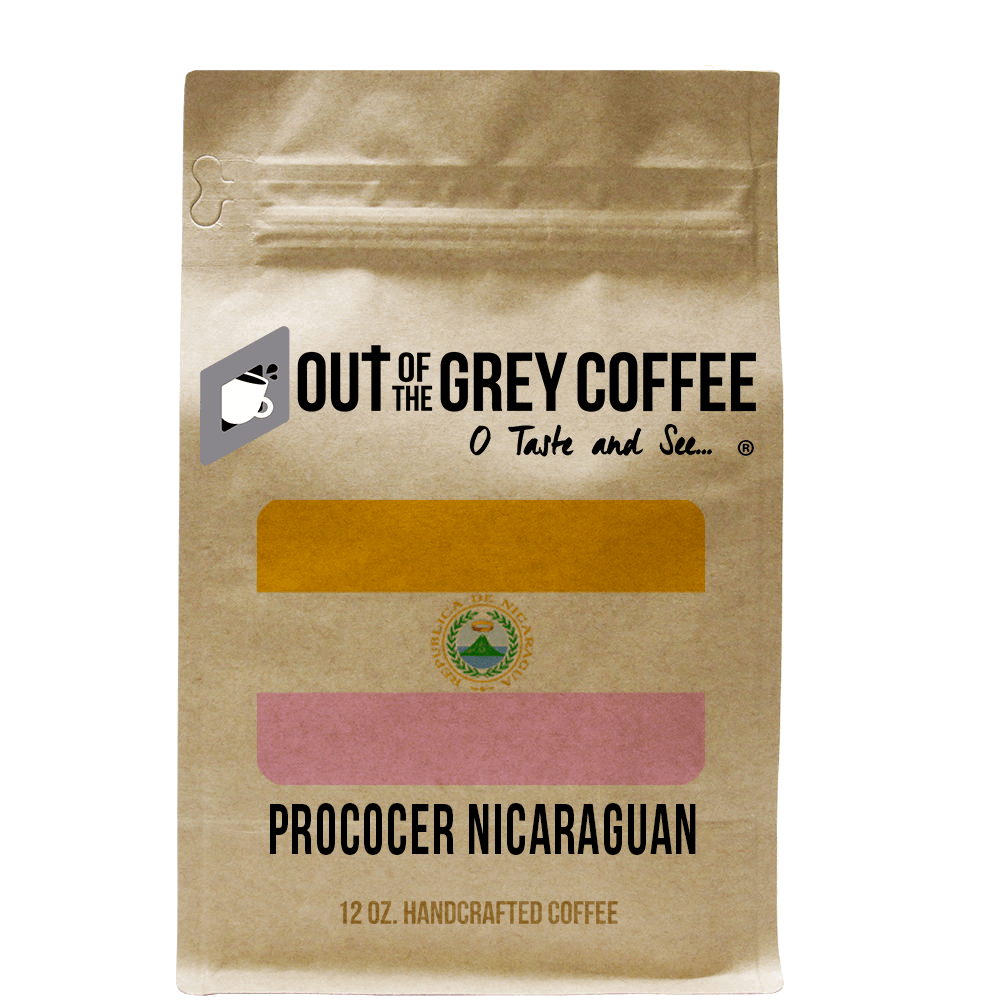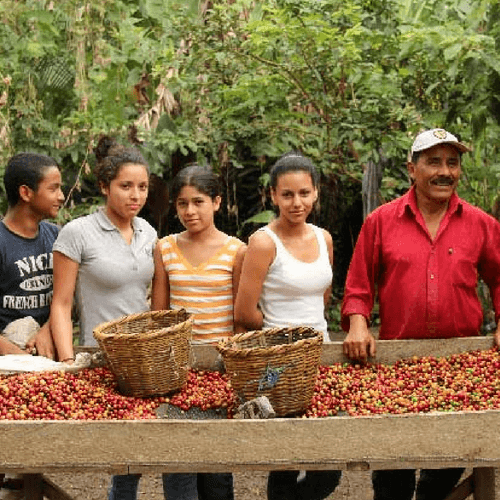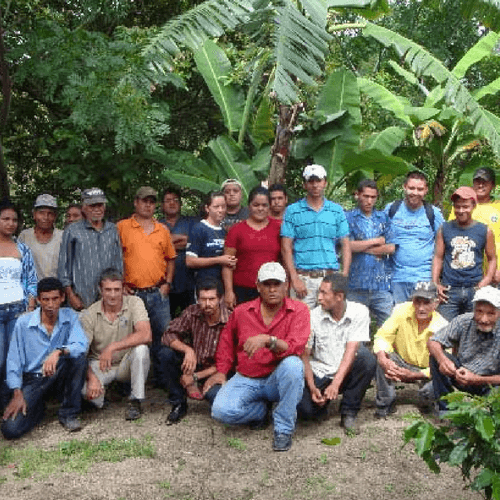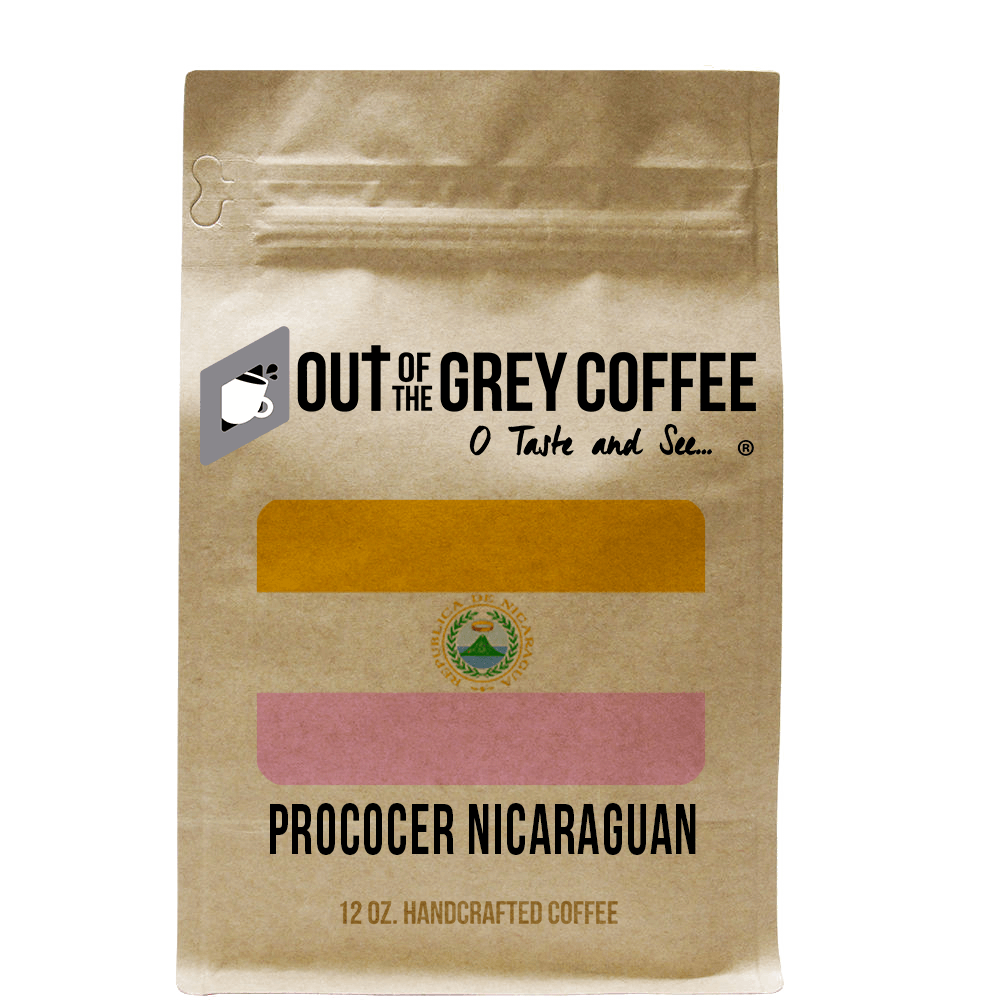



Single Origin - PROCOCER Nicaraguan - Fair Trade Coffee
$22.99 - $23.48
Clean, well-balanced and rich, honey, chocolate, toffee, subtle peach, toasted almond flavors, syrupy body with long lasting bold finish.
Perfect choice for coffee drinkers suffering from digestive issues, or those that just prefer low acidic coffees with a higher level of antioxidants.
100% delicious!
Roast: Dark Medium
Processing: Washed and Sun Dried On Raised Beds
Altitude: 900 - 1250 M.A.S.L.
Harvest: October - March
12 oz. Handcrafted Fair Trade Coffee
PROCOCER grew out of the Nicaraguan Small Farmers and Ranchers Union (UNAG) initiative to provide intensive technical assistance to individual, organic coffee producers in the municipalities of Jícaro, Murra, Ciudad Antigua, San Fernando y Jalapa. From that first experience, 150 participants decided to continue working collectively and establish their own organization. PROCOCER members held their first general assembly in October 1999 and the Cooperativa de Servicios Multiples was formally registered.
Today PROCOCER has approximately 600 members. Membership is open and voluntary; and the organization is controlled democratically with members actively participating in decision-making and policy making for the coop. Representatives are chosen from the farmer groups in their distinct geographical territories to participate in the delegates’ assembly and required to report back directly to the communities they represent.
In 2003, PROCOCER became one of the founding members of the Association of Cooperatives of Small-Scale Producers (CAFENICA) – which helps promote member-organizations’ coffee and gain support for business management projects. They also are part of the CECOCAFEN central coordinating union of coops, which is now their main source for pre-harvest financing, and export channel and quality control for their Fair Trade and organic green coffee.
Since 2005, PROCOCER has partnered with several local and international allies, helping them to develop their own roasted coffee brand, “El Doradito” for the local market, and facilitating additional technical assistance to strengthen their organization, improve quality control, and improve administration capacity. In 2005, PROCOCER presented their Rural Tourism project to the Nicaraguan United Nations Program and were awarded initial support to enhance their general understanding of the potential for tourism in Las Segovias and their internal capacity to manage the project, as well as some of the up-front costs of the basic infrastructure needed to further develop the project.
PROCOCER maintains a clear mission: to strengthen the organizational and financial capacity of the coop, increase their productive yields, and assure the quality of their coffee to meet the demands of the specialty coffee market. They are also working hard to diversify productive and economic activities, to improve the well-being of their member families while conserving the environmental balance and natural beauty of their region.
While Nicaragua has primarily been a source for Fair Trade– and organic-certified coffees for ootgCoffee, recently we have been exploring different partnerships for more specialized coffees from individual producers or groups, and even investigating the possibility of microlots. We see great potential in the Nueva Segovia region, with its higher altitudes and the producers’ growing interest in quality varieties and experimental processing.
HISTORY
Nicaragua was planted with coffee in the late 1800s, but it wasn’t until the middle of the 19th century that the crop established itself as an important export: Increasing global demand—especially from North America—and diminished supply from the Pacific Islands contributed to a steady development of the coffee market here, and the first large plantations emerged in the Managua District around this time, spreading to Jinotepe, Matagalpa, Jinotega, and Nueva Segovia. The Nicaraguan government encouraged European immigrants from Italy and Germany to buy land for coffee, and until land redistribution created small parcels of land (typically smaller than 5 hectares), the majority of the coffee was controlled by white landowners who often exploited local labor with very low wages and poor conditions.
While its nearby neighbors of Costa Rica, El Salvador, and even Guatemala began emerging as specialty-coffee origins in the 1980s, Nicaragua’s political and economic instability through the long Nicaraguan Revolution period (roughly 1974–1990), as well as the destruction of Hurricane Mitch in 1998, are among the contributing factors that kept the country out of the specialty spotlight. The breaking up of larger estates into smallholder plots created some confusion and disjointedness among the agrarian sector through the ‘80s and into the early ‘90s; USAID and Fair Trade work in-country was instrumental in unifying small producers into cooperatives and grower societies.
While Nicaragua has historically been planted with good-performing varieties—Typica, Bourbon, Caturra, Maragogype, and other classic cultivars—areas of relatively low altitude (800–900 masl), the remoteness of the small farms, and battles with coffee-leaf rust in the past decade have remained obstacles in the way of the country achieving clear, prized single-origin status. The largest country in Central America, Nicaragua continues to develop its reputation as a coffee origin to watch, however: The crop is still its most important, accounting for over $1.2 billion in exports, and about 15 percent of the country’s labor force is somehow involved in the coffee sector.

